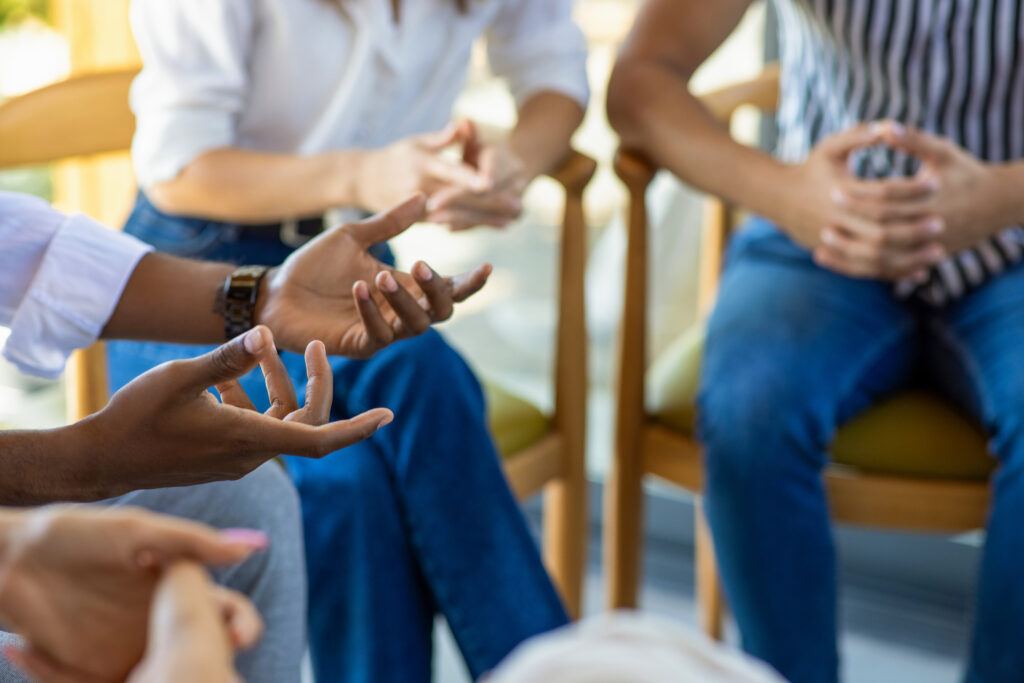Published September 17, 2025
A new state-level action plan is addressing sexual violence in Iowa and serves as a resource to help prevent it before it occurs.
The State Action Plan for Preventing Sexual Violence Before It Occurs aims to implement and evaluate strategies that prevent first-time occurrence of sexual violence (e.g. rape, unwanted touching, sexist language) among Iowan children and youth ages 10 to 24 to create safer and healthier communities.
Among Iowans who experienced unwanted sexual activity before age 18, 30% also reported being forced into sexual activity as adults. In contrast, 5.3% of those without such childhood experiences reported similar incidents in adulthood.
Monica Goedken, violence prevention coordinator at the Iowa Department of Health and Human Services (Iowa HHS), said stopping sexual violence before it happens is the most effective way to reduce exposure to sexual violence while improving population health.
“Exposure to sexual violence amplifies adverse health outcomes across the lifespan and through generations,” she said. “For instance, survivors of sexual violence in Iowa reported higher rates of mental health distress than those not exposed to sexual violence.”
The 2020 Iowa Behavioral Risk Surveillance Survey found that approximately 1 in 12 adults in Iowa (8.5%)—an estimated 171,372 people—reported experiencing forced sexual activity at some point since turning 18. In 2023, that number increased to 11.2% — or 1 in 9 — an estimated 251,819 Iowans.
Goedken said that all aspects of a person’s life and community are impacted by sexual violence. Examples include premature mortality, low self-esteem, severe obesity, physically sedentary, repeat victimization, post-traumatic stress disorder (PTSD), gastrointestinal disorders, chronic pelvic pain, sleep disorders, substance use, unintentional pregnancy, increased risk of sexually transmitted infections, and seeking little to no prenatal care.
“In fact, survivors of sexual assault are at greater risk for various diseases, including cervical cancer,” she said. “This is why Iowa HHS, state-level partners, and community leaders are working to accomplish goals and activities outlined in the state action plan.”
The state action plan was created by Iowa HHS, University of Iowa Injury Prevention Research Center (UI IPRC), and Iowa Coalition Against Sexual Assault (IowaCASA).

Social and environmental conditions
The state action plan will focus on improving the social and environmental conditions that increase the risk of both victimization and perpetration—especially in communities more impacted by these conditions. Risk factors, or root causes, for sexual violence include poverty, societal norms that support sexual violence, and high crime and violence levels.
Goedken said that preventing the development of problematic sexual behaviors that contribute to perpetrating sexual violence is integral in prevention efforts.
“If you address the social and environmental conditions contributing to the development of these violent behaviors, you can eliminate sexual violence,” she said.
Some examples include programming which develops empathy and concern for how one’s actions affect others, families where caregivers work through conflicts peacefully, academic achievement, and improving emotional health through social connectedness.
In addition, the state action plan aims to strengthen data collection in communities with high rates of sexual violence—especially those whose experiences are often missing from mainstream health and criminal justice data. The plan focuses on four prevention strategies over five years in communities at highest risk for sexual violence:
- Strengthening economic support for women and families
- Creating protective environments
- Teaching adults the skills to protect children from sexual abuse
- Promoting social norms that protect against violence

Preventing of all types of violence
Almost all sexual violence prevention efforts also prevent other types of violence within Iowa communities, said Goedken.
“For instance, teaching skills that protect against sexual violence by fostering empathy and concern for how one’s actions affect others will help prevent bullying, youth violence, dating violence, and firearm fatalities,” she said.
Goedken said activities, programming, and partnership which address the social and environmental factors contributing to sexual violence will help prevent multiple types of violence also impacted by those same factors.
“Violence is interconnected through the social and environmental conditions that increase the risk for developing violent, abusive, and problematic behaviors and attitudes towards oneself and others,” she said.
Elevating community voices
The state action plan will be updated annually to address community priorities and lessons learned through round table discussions and community conversations.
“Within the state action plan we outline the current prevention strategies and activities we are currently focused on. This is available on pages 10 – 14,” Goedken said, “We are in the process of updating the section informed by community coalitions addressing community priorities for preventing sexual violence based on community needs assessments.”
Last year, the 2021 Statewide Survey of Safety & Violence, a project led by Iowa HHS, UI IPRC, and IowaCASA, provided insights from Iowans on their experiences with and perceptions of safety and violence within their communities.
Goedken said this information helped inform the state action plan in prioritizing prevention activities, programming, settings, and local partners.
“As an example, survey respondents believe that 56.1% of most to almost all sexual violence can be prevented,” she said. “This shows that Iowans believe prevention is possible.”
Iowa has a network of certified victim advocates working in local communities to prevent and respond to sexual violence. To speak with a victim advocate call 1-800-770-1650 or text IOWAHELP to 20121. Find your local program at IowaCASA.org.
Some resources:
- Webinar: Perceptions of Community Safety in Iowa Survey Results and Panel Discussion October 2, 2024
- Iowa Coalition Against Sexual Assault (IowaCASA)
- Iowa Victim Service Call Center
- Sexual Violence Prevention: Risk and Protective Factors for Perpetration (CDC)
- Veto Violence – Connecting the Dots (CDC)
- Intimate Partner Violence UI IPRC)
- Safety (UI IPRC)